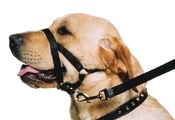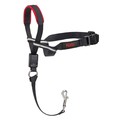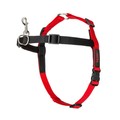When it comes to dogs, one personality doesn’t fit all. Like humans, they are complete individuals with their own traits and tendencies. While some dogs will be confident, others will be shy; some friendly and others hostile. As with humans, genetics play a big part in determining personality, just as breed does. That said, many behaviours are very much determined by how much a dog has been socialised, especially during the critical period of 3-12 weeks when a dog is most receptive.
So, what is socialisation? In short, socialising your dog means teaching it to relate to humans, other animals and worldly experiences without being unduly nervous or aggressive. Repeated, direct exposure achieves this and helps develop your dog into a relaxed and happy social butterfly. Both the quantity and quality of interaction is important.
Change can be scary, especially if it happens suddenly, rather than being introduced gradually and in a calm and controlled environment. If the latter situation occurs, over time your dog will come to welcome change with a positive and trusting attitude. If, on the other hand, your dog isn’t socialised early on, change will be met with uncertainty and fear. In some cases, this will result in aggressive displays.
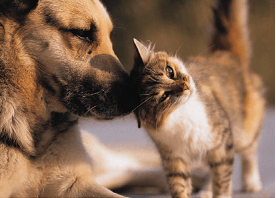 Socialisation should really begin at home and when your dog is still young and eager to learn. The best time to start this process is between 3-12 weeks of age when your dog is receptive and more likely to meet change openly. However, this is still a tender age when the outside world poses many threats, so trying to restrict interactions to the secure home environment is probably the best option.
Socialisation should really begin at home and when your dog is still young and eager to learn. The best time to start this process is between 3-12 weeks of age when your dog is receptive and more likely to meet change openly. However, this is still a tender age when the outside world poses many threats, so trying to restrict interactions to the secure home environment is probably the best option.
As your dog gets older, you can continue the socialisation process with regular walks to the park and other sociable activities. Dogs that are slightly older when adopted can still be socialised this way; the process is just likely to take a bit longer. Socialisation is never just for puppies and should really be reinforced throughout life. Circumstances change, people move away and new members join the family, so your dog will always need its good manners to fall back on.
If you have a busy household, human socialisation is easily achieved. Close proximity to your dog, petting and handling, playing and communicating can all help you form a strong and trusting relationship. However, your dog is also going to come into contact with strangers during its life so it is worth encouraging friends and relatives to drop by and spend some time with your dog in a cheerful, non-threatening context.
Dropping treats on the floor as they enter can promote feelings of ease and trust, which your dog should ultimately have every time he meets a stranger. Playful and positive interactions will encourage your dog to feel relaxed and to always welcome visitors with calm enthusiasm.
Introducing your dog to other dogs and animals is a tad more difficult, as we don’t all have friends with dogs we can bring together. Moreover, some dogs are completely fine with other dogs, but react badly to cats and smaller animals. For others, it is the opposite way round. Introducing different animals should again be a gradual process that is approached with caution and care. The secret is to avoid rushing or forcing relationships, as this puts pressure on every interaction.
Puppy classes can really help as dogs come face to face with one another, including dogs of the opposite sex. This allows friendships to be made and reinforces social behaviours. Regular play dates and outings also help with this.
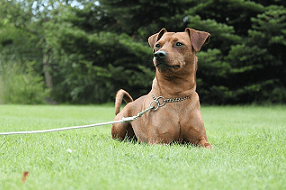 When your dog is old enough to venture out in public, make sure he is always on a lead. While it isn’t illegal to have a dog off-lead, many dog owners think it is inconsiderate, especially in busy, dog-friendly areas or crowded public spaces. No matter how well socialised your dog is, some dogs aren’t and won’t take kindly to having another dog approach them. Neither will some people, for that matter.
When your dog is old enough to venture out in public, make sure he is always on a lead. While it isn’t illegal to have a dog off-lead, many dog owners think it is inconsiderate, especially in busy, dog-friendly areas or crowded public spaces. No matter how well socialised your dog is, some dogs aren’t and won’t take kindly to having another dog approach them. Neither will some people, for that matter.
It is illegal to have a dog that is ‘dangerously out of control,’ so it is better to always veer on the side of caution. If your dog is on a lead and under control, you don’t run the risk of anything happening which you are later held accountable for e.g. a dog, livestock or human attack. Even well socialised dogs can get excitable and boisterous and it is vital that you continue the process of teaching manners and etiquette throughout life - something that a lead can really help with.
If you have any advice on socialising dogs, please share it with our other readers! Feel free to comment below or email me directly: [email protected]
Written by: Hannah



